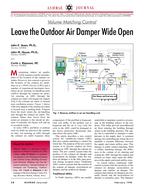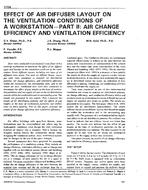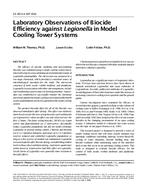As boilers in space heating applications typically have long service lifetimes, the incentive for retrofit system efficiency upgrades is greater than equipment replacement for the efficiency-minded owner. System improvements representing the "low hanging fruit" are familiar, as simple as improved pipe insulation to aftermarket controls such as Outdoor Temperature Reset or lead/lag controllers for sites with multiple boilers. Beyond these initial system efficiency upgrades are an emerging class of advanced aftermarket controllers that dynamically respond to the boiler load, with claims of 10% to 30% of fuel savings over a heating season.
For hydronic boilers specifically, these devices perform load monitoring, with continuous measurement of return and in some cases supply water temperatures. An onboard microprocessor with memory of past boiler cycling adjusts normal cycling by preventing the boiler from firing for a period of time, to prevent unnecessary and inefficient operation during perceived low load conditions. In addition, it is claimed that savings can also be achieved post-equipment upgrade, for high-efficiency boilers as well, since the controllers reduce boiler cycling and minimally impact steady state boiler thermal efficiency. Quantifying the savings of these advanced controllers and better understanding the conditions in which savings are achieved are the primary goals of this laboratory and field evaluation.
The results of both laboratory testing and field testing are summarized. Through laboratory testing, a laboratory test stand was developed to deliver a variable heating load to the test boiler in order to simulate the loads in a typical building installation. Using the EnergyPlus modeling software and Dept. of Energy Reference Buildings for a Chicago-area Secondary School and Hotel, heating load patterns were generated, scaled to the lab setup, and then recreated by the test stand for a boiler equipped with an Advanced Load Monitoring controller, where models from two manufacturers are tested. The authors summarize the methodology and initial test data, as reported in a past publication, and describe the balance of test data including average winter and shoulder season performance for both building types. The authors extrapolate results to estimate annual savings comparing each controller to baseline testing. Through limited field testing of one controller in a multifamily application with week on/week off control, the performance over a heating season is summarized, showing reduced boiler cycling and energy consumption.
Citation: ASHRAE Papers CD: 2014 ASHRAE Winter Conference, New York, NY
Product Details
- Published:
- 2014
- Number of Pages:
- 8
- File Size:
- 1 file , 570 KB
- Product Code(s):
- D-NY-14-C001


